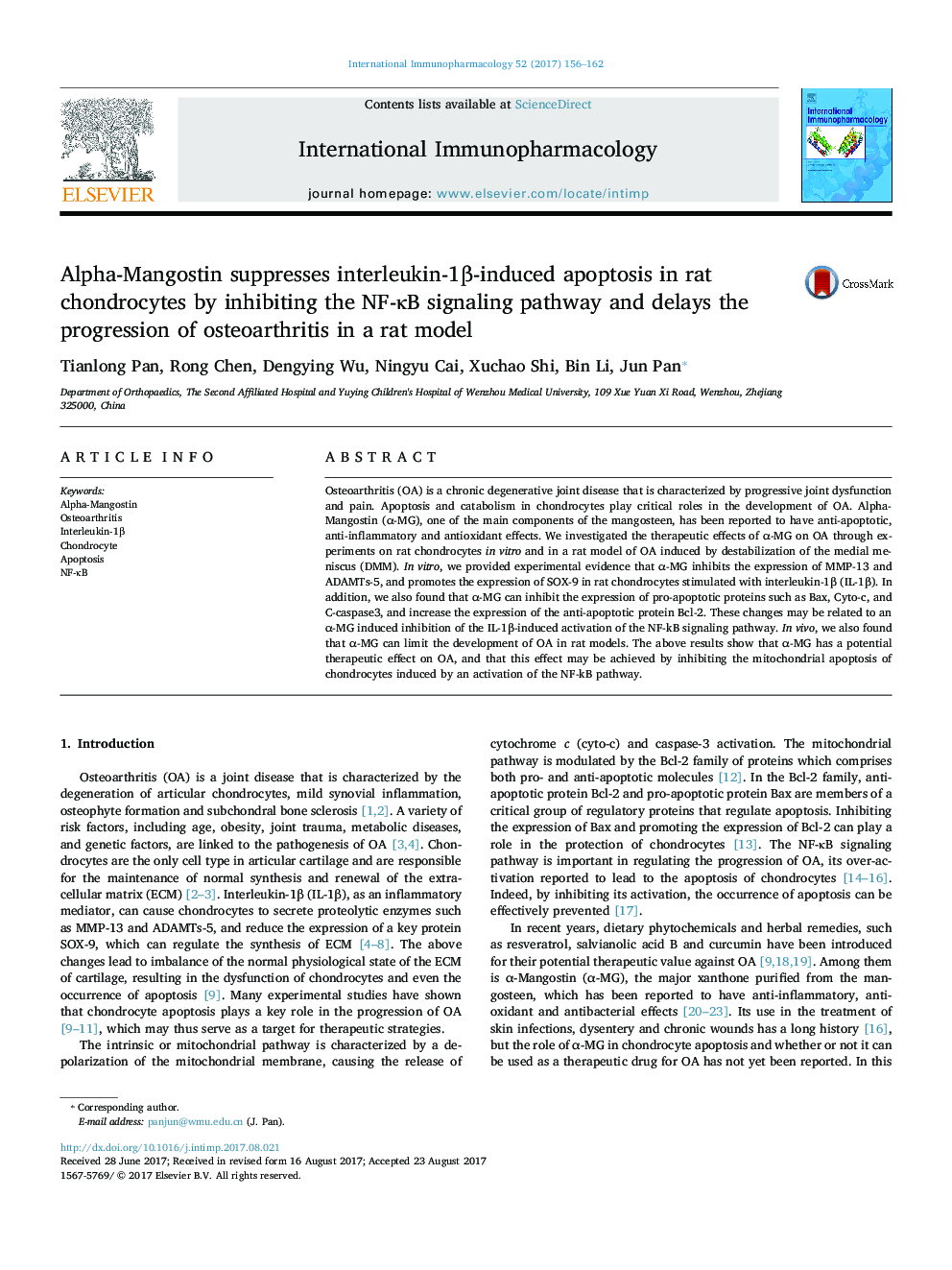| Article ID | Journal | Published Year | Pages | File Type |
|---|---|---|---|---|
| 5555255 | International Immunopharmacology | 2017 | 7 Pages |
â¢Alpha-Mangostin suppresses interleukin-1β-induced apoptosis in rat chondrocytes.â¢Î±-MG could suppress the activation NF-κB signaling.â¢Î±-MG slowed cartilage degradation in OA rat model.â¢Î±-MG may have a potential therapeutic value for OA.
Osteoarthritis (OA) is a chronic degenerative joint disease that is characterized by progressive joint dysfunction and pain. Apoptosis and catabolism in chondrocytes play critical roles in the development of OA. Alpha-Mangostin (α-MG), one of the main components of the mangosteen, has been reported to have anti-apoptotic, anti-inflammatory and antioxidant effects. We investigated the therapeutic effects of α-MG on OA through experiments on rat chondrocytes in vitro and in a rat model of OA induced by destabilization of the medial meniscus (DMM). In vitro, we provided experimental evidence that α-MG inhibits the expression of MMP-13 and ADAMTs-5, and promotes the expression of SOX-9 in rat chondrocytes stimulated with interleukin-1β (IL-1β). In addition, we also found that α-MG can inhibit the expression of pro-apoptotic proteins such as Bax, Cyto-c, and C-caspase3, and increase the expression of the anti-apoptotic protein Bcl-2. These changes may be related to an α-MG induced inhibition of the IL-1β-induced activation of the NF-kB signaling pathway. In vivo, we also found that α-MG can limit the development of OA in rat models. The above results show that α-MG has a potential therapeutic effect on OA, and that this effect may be achieved by inhibiting the mitochondrial apoptosis of chondrocytes induced by an activation of the NF-kB pathway.
